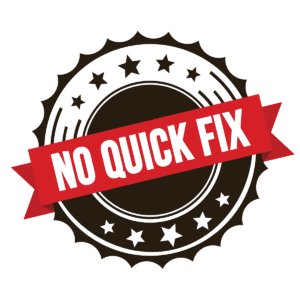Maybe it’s not about you. This statement is true in many contexts. In fact, I will probably start several blog posts with this sentence. Today, though, I’m thinking about parenting books and advice. They can be incredibly helpful tools. They can also be a source of personal shame when, again and again, they don’t work for your child. When this happens, it’s often not about you. It doesn’t mean there is something wrong with you. It doesn’t mean your child is beyond help. It just means this book or post doesn’t apply to you, your child, or your situation.
 When I first realized my son was struggling more than the other young kids we knew, one of my coping strategies was to go to the experts (or their books anyway) to work on my parenting. This is a great place to start. Reading about parenting philosophies and trying new approaches is important, especially when you can tell your current tools aren’t enough. Plus, going into a tough situation with a plan helps us respond intentionally instead of being overly reactive. So, the stack of books on my nightstand grew quickly, with each book claiming to be THE secret to a well-adjusted child and happy home. Almost every time I read about a new parenting hack or implemented a new strategy, though, what I found was demoralization, fear and uncertainty. I would come away from my reading filled with hope and resolve, only to have whatever strategy I was trying blow up in my face. My child would persist indefinitely in the face of resistance. He did not shift his tactics. He escalated. If a book promised a few repetitions of an unwanted behavior or a few days of dysregulation with a new routine or boundary, we were looking at hours of endless repetitions or months long adjustment periods. Nothing “worked” the way the books or the mommy-bloggers promised. So, I was left feeling that either I or my child must be defective. It didn’t dawn on me to do anything other than try harder. Doubling down on these parenting styles, though, seemed to be creating distance and conflict, not harmony or growth.
When I first realized my son was struggling more than the other young kids we knew, one of my coping strategies was to go to the experts (or their books anyway) to work on my parenting. This is a great place to start. Reading about parenting philosophies and trying new approaches is important, especially when you can tell your current tools aren’t enough. Plus, going into a tough situation with a plan helps us respond intentionally instead of being overly reactive. So, the stack of books on my nightstand grew quickly, with each book claiming to be THE secret to a well-adjusted child and happy home. Almost every time I read about a new parenting hack or implemented a new strategy, though, what I found was demoralization, fear and uncertainty. I would come away from my reading filled with hope and resolve, only to have whatever strategy I was trying blow up in my face. My child would persist indefinitely in the face of resistance. He did not shift his tactics. He escalated. If a book promised a few repetitions of an unwanted behavior or a few days of dysregulation with a new routine or boundary, we were looking at hours of endless repetitions or months long adjustment periods. Nothing “worked” the way the books or the mommy-bloggers promised. So, I was left feeling that either I or my child must be defective. It didn’t dawn on me to do anything other than try harder. Doubling down on these parenting styles, though, seemed to be creating distance and conflict, not harmony or growth.
 It wasn’t until my son’s psychologist pointed out that there is no one-size-fits-all parenting philosophy that I was finally able to put the books down and take a deep breath. In the stress of parenting, I couldn’t come to that conclusion on my own. I needed outside help. “Love and Logic” only “works” if your child can access logic. “1-2-3 Magic” only “works” if your child is capable of inhibiting impulses. The advice to refuse to react to a child’s behavior and let it extinguish itself is a lot more feasible when your kid gets with the program in 15 minutes instead of 3 hours. If the media (social or mainstream) is setting the expectation that one way is THE way, beware.
It wasn’t until my son’s psychologist pointed out that there is no one-size-fits-all parenting philosophy that I was finally able to put the books down and take a deep breath. In the stress of parenting, I couldn’t come to that conclusion on my own. I needed outside help. “Love and Logic” only “works” if your child can access logic. “1-2-3 Magic” only “works” if your child is capable of inhibiting impulses. The advice to refuse to react to a child’s behavior and let it extinguish itself is a lot more feasible when your kid gets with the program in 15 minutes instead of 3 hours. If the media (social or mainstream) is setting the expectation that one way is THE way, beware.
 Now, I’m not suggesting that people with information about developing brains shouldn’t use that research to educate us on the best practices we can use to parent. That is important information. If you have a parenting tip or trick that works for you, absolutely share it with people it might help. What I’m thinking, though, is that we should back away from the temptation to claim that there is any one system or school of thought that is THE answer. It would be so nice, but it’s not true. If you’ve found what works for you, great! Congratulations and I am genuinely happy for you. AND, when you put it out in the world, maybe add a caveat. “Putting this out there because it’s what works in my house. Try it on and see if it’s useful in yours…” Or “Research suggests this is effective for the majority of neurotypical children…” Most of the time, there is no quick fix. What there is, is a process of seeing your child, developing a deeper understanding of what they are struggling with, trying a bunch of different ways to fill in their skill gaps and get insurmountable obstacles out of their way, and gradually moving in the direction you need to go. It’s never perfect and often messy, but that is a necessary part of the process rather than a personal shortcoming.
Now, I’m not suggesting that people with information about developing brains shouldn’t use that research to educate us on the best practices we can use to parent. That is important information. If you have a parenting tip or trick that works for you, absolutely share it with people it might help. What I’m thinking, though, is that we should back away from the temptation to claim that there is any one system or school of thought that is THE answer. It would be so nice, but it’s not true. If you’ve found what works for you, great! Congratulations and I am genuinely happy for you. AND, when you put it out in the world, maybe add a caveat. “Putting this out there because it’s what works in my house. Try it on and see if it’s useful in yours…” Or “Research suggests this is effective for the majority of neurotypical children…” Most of the time, there is no quick fix. What there is, is a process of seeing your child, developing a deeper understanding of what they are struggling with, trying a bunch of different ways to fill in their skill gaps and get insurmountable obstacles out of their way, and gradually moving in the direction you need to go. It’s never perfect and often messy, but that is a necessary part of the process rather than a personal shortcoming.
So, if you read about the latest “hack” or popular parenting philosophy and think, “that would never work for us”, or if you leave the article or post feeling more alone and worse about yourself, then chances are it wasn’t written about or for you or your kid. If you’re unsure, try that advice or tactic to see if it has any relevance for your family. Combine different approaches to find a hybrid that’s best for you. But maybe you can just remind yourself that this one’s not about you and move on with your life.









